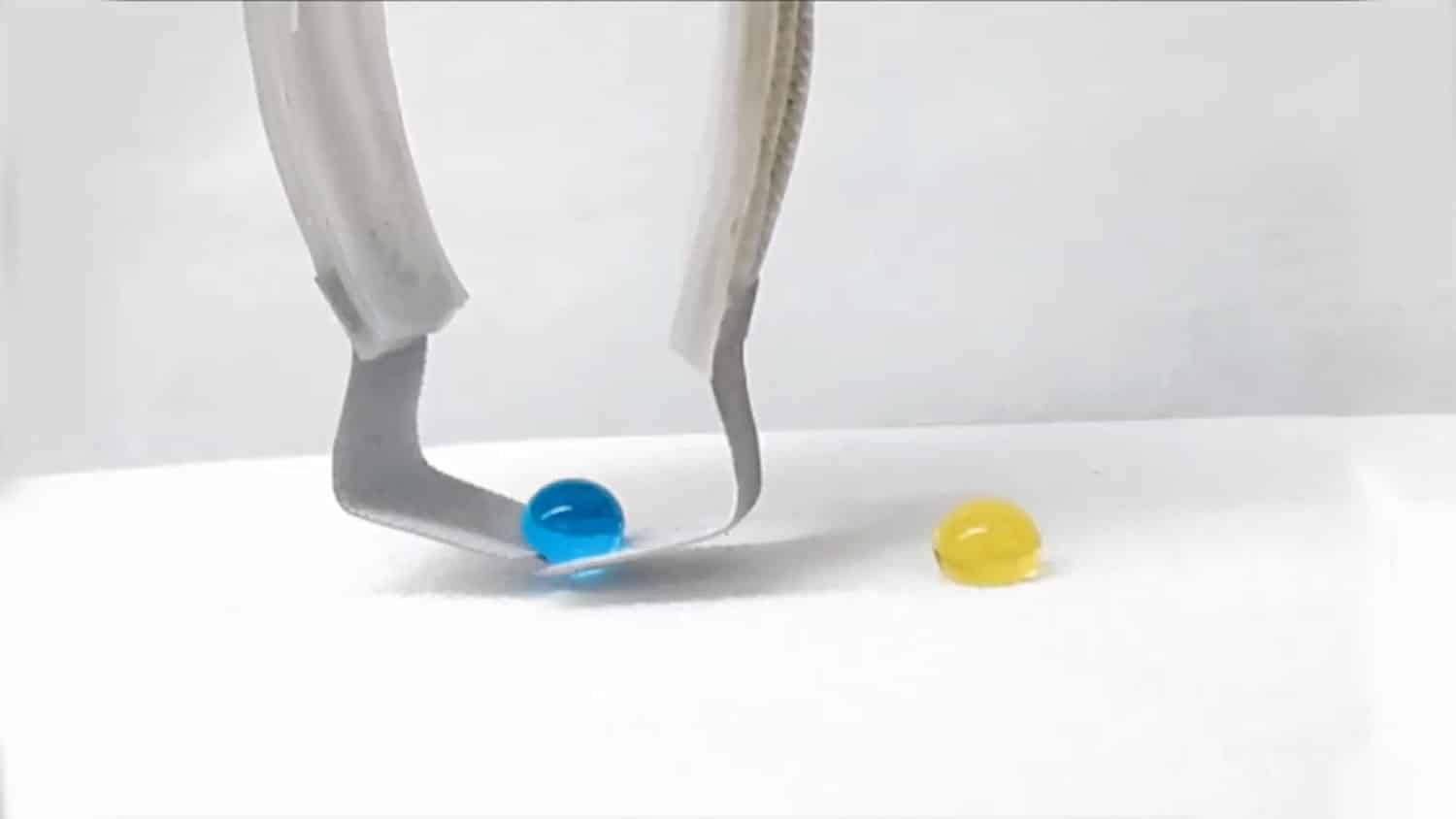
Conventional robots are made of components that are heavy, rigid, and expensive, making them poorly suited for some tasks. On the other hand, soft robots can be lightweight, provide a gentle touch, and can be produced at a fraction of the cost of their rigid cousins.
Now, a research team from Colorado State University (CSU) has created the first successful soft robotic gripper capable of manipulating individual droplets of liquid. The manipulators are designed by integrating thermo-responsive soft actuators with superomniphobic surfaces.
Powered by an electrically activated artificial muscle, the soft robotic manipulator is made of inexpensive materials like nylon fibers and adhesive tape. The combination can be used to produce lightweight, inexpensive grippers capable of delicate work yet 100 times stronger than human muscle for the same weight.
“A single gripper as large as my finger is one or two grams, including the artificial muscle embedded. And it’s inexpensive – just one or two dollars,” said Jiefeng Sun, a postdoctoral fellow in the Department of Mechanical Engineering’s Adaptive Robotics Laboratory and co-first author of the paper.
The soft robotic grippers are treated with a novel superomniphobic coating that makes the droplet manipulator possible. The coating resists wetting by nearly all types of liquids, even in dynamic situations where the contact surfaces are tilting or moving. The superomniphobic coating enables the soft robotic manipulator to interact with droplets without breaking their surface tension. So that it can grasp, transport, and release individual droplets as if they were flexible solids.
In many liquid spill scenarios, human cleanup can be dangerous due to toxicity, risk of contagion, or other hazards in the surroundings. These droplet manipulators are inexpensive enough to be disposable but capable enough to do precise, lossless liquid cleanup work no other robot has ever done.
Researchers envision that their biofluid manipulators will not only reduce manual operations and minimize exposure to infectious agents but also pave the way for developing inexpensive, simple, and portable robotic systems, which can allow point-of-care operations, particularly in developing nations.
Journal reference:
- Wei Wang, Jiefeng Sun, Sravanthi Vallabhuneni, Benjamin Pawlowski, Hamed Vahabi, Kimberly Nellenbach, Ashley C. Brown, Frank Scholle, Jianguo Zhao, and Arun K. Kota. On-demand, remote and lossless manipulation of biofluid droplets. Materials Horizons (2022). DOI: 10.1039/D2MH00695B
Novel soft robotic droplet manipulator for hazardous liquid cleanup
Source: Tambay News

0 Comments